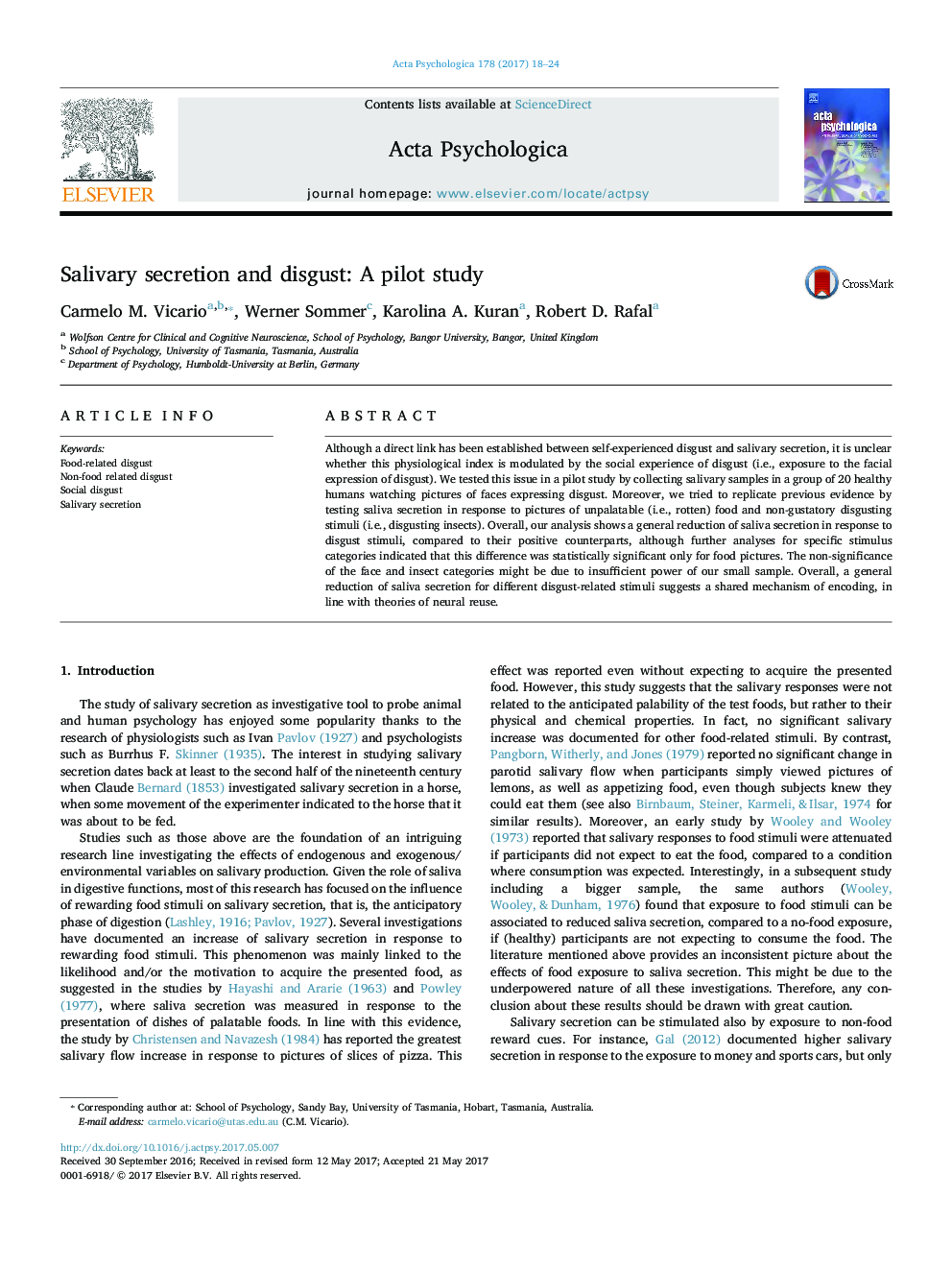| Article ID | Journal | Published Year | Pages | File Type |
|---|---|---|---|---|
| 5040292 | Acta Psychologica | 2017 | 7 Pages |
Abstract
Although a direct link has been established between self-experienced disgust and salivary secretion, it is unclear whether this physiological index is modulated by the social experience of disgust (i.e., exposure to the facial expression of disgust). We tested this issue in a pilot study by collecting salivary samples in a group of 20 healthy humans watching pictures of faces expressing disgust. Moreover, we tried to replicate previous evidence by testing saliva secretion in response to pictures of unpalatable (i.e., rotten) food and non-gustatory disgusting stimuli (i.e., disgusting insects). Overall, our analysis shows a general reduction of saliva secretion in response to disgust stimuli, compared to their positive counterparts, although further analyses for specific stimulus categories indicated that this difference was statistically significant only for food pictures. The non-significance of the face and insect categories might be due to insufficient power of our small sample. Overall, a general reduction of saliva secretion for different disgust-related stimuli suggests a shared mechanism of encoding, in line with theories of neural reuse.
Keywords
Related Topics
Life Sciences
Neuroscience
Cognitive Neuroscience
Authors
Carmelo M. Vicario, Werner Sommer, Karolina A. Kuran, Robert D. Rafal,
